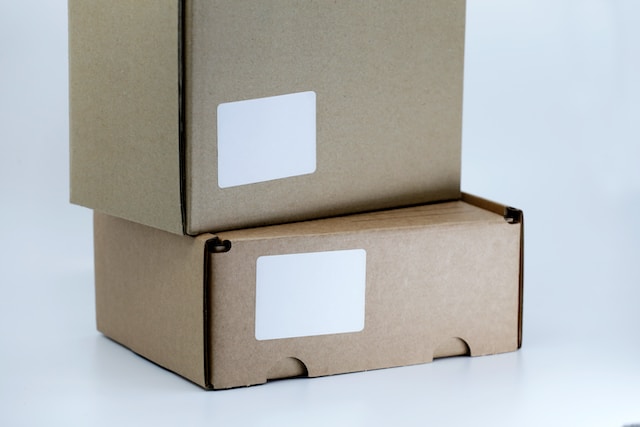Packing your books for storage may seem like a straightforward task, but it's a crucial one. Whether you're moving to a new home, downsizing, or simply want to keep your books safe, proper packing can make all the difference in preserving their condition. We'll provide you with expert tips to ensure your books remain in excellent shape during their time in storage.
Assessing Your Book Collection
Before you dive into packing, there are some storage and packing tips you should know. First, you should take some time to assess your book collection. Sorting and categorizing your books can help you determine the best packing strategies. Start by categorizing your books by genre, size, or importance. This will make it easier to keep track of your collection and decide which books need special attention.
Identifying valuable or delicate books is another crucial step. Some books may have sentimental value, while others could be rare or collectible. These books require extra care during packing to prevent any damage.
When packing your books for storage, start categorizing your books by genre, size, or importance.
Additionally, consider decluttering your collection. Parting with books you no longer need can save you space and reduce your packing workload. Donate or sell books that no longer serve you to free up room for your favorites.
Gather Necessary Supplies
To pack your books effectively, you'll need the right supplies. Here's a list of essential packing materials:
- Boxes of Various Sizes: Choose sturdy boxes in different sizes to accommodate your books. Smaller boxes work well for heavy books, while larger ones are suitable for lighter reads.
- Packing Paper or Bubble Wrap: Use packing paper or bubble wrap to protect your books from dust and damage during transit or storage.
- Packing Tape: Ensure you have strong packing tape to secure your boxes properly.
- Markers and Labels: Labeling your boxes is essential for easy identification later.
You can find these supplies at your local moving supply store or online retailers. It's advisable to have more supplies than you think you'll need to avoid any last-minute shortages.
Preparing Your Books
Before packing your books for storage, it's essential to prepare them properly:
- Dusting and Cleaning Books: Dust off your books with a soft cloth or a small brush. Cleaning them ensures they don't transfer dirt to other books during storage.
- Wrapping Delicate or Valuable Books: For rare or valuable books, consider wrapping them individually in acid-free paper or bubble wrap. This added layer of protection can prevent scratches and moisture damage.
- Removing Bookmarks and Loose Items: Take out any bookmarks, notes, or loose items from your books. These can damage the pages or bindings if left inside during storage.
- Taking Inventory: Create a list or catalog of your books. This inventory will help you keep track of your collection and make it easier to locate specific titles when you need them.
Labeling your boxes is essential for easy identification later.
Packing Your Books for Storage
When storing your valuable possessions, the Allstate Moving and Storage Baltimore movers emphasize the importance of finding a quality storage solution, particularly climate-controlled units. These units maintain a consistent temperature and humidity level, safeguarding your belongings from extreme weather conditions and ensuring they remain in pristine condition. Choosing climate-controlled storage is wise for anyone looking to preserve their items for the long haul.
Now that your books are prepared, it's time to pack them properly:
- Selecting Appropriate Boxes: As mentioned earlier, choose boxes of various sizes based on your books' dimensions. Ensure the boxes are in good condition, without any tears or weaknesses.
- Properly Arranging Books Within Boxes: Pack books vertically to prevent spine damage. Place heavier books at the bottom and lighter ones on top. Fill gaps with smaller books or packing materials to prevent shifting during transport or storage.
- Filling Empty Spaces: To avoid books shifting inside the boxes, fill any remaining empty spaces with packing paper or bubble wrap.
- Labeling Boxes: Clearly label each box with its contents. Use keywords like "Fiction," "Non-Fiction," or "Cookbooks" to make it easier to find specific books later.
- Tips for Stacking and Organizing Boxes: When stacking boxes, place heavier boxes at the bottom and lighter ones on top to prevent damage. Keep an aisle or pathway if you'll be accessing your storage regularly.
Storing Your Books
Choosing the right storage solution is crucial to preserving your books:
- Choosing an Appropriate Storage Location: Select a clean, dry, and climate-controlled storage space. Avoid damp basements or areas prone to temperature fluctuations, as these can damage your books.
- Considerations for Long-Term Storage: If you plan to store your books for an extended period, invest in acid-free storage materials and shelves. These materials will help maintain the quality of your books over time.
- Climate Control and Humidity Management: Maintain a consistent temperature and humidity level in your storage space to prevent mold, mildew, or warping of book pages.
- Protecting Books from Pests and Damage: Use bookshelves or storage containers with tight-fitting lids to keep pests and dust away from your books. Consider adding silica gel packets to absorb excess moisture.
Tips for Special Cases
If you have special types of books in your collection, consider these additional tips:
- Rare or Antique Book Storage Considerations: Store rare or antique books in acid-free archival boxes or sleeves. Keep them in a climate-controlled environment to prevent deterioration.
- Comic Book, Graphic Novel, and Magazine Storage: Use acid-free bags and boards for comic books and graphic novels. Store magazines in upright, acid-free magazine holders to prevent creasing.
- Oversized or Irregularly Shaped Books: Seek appropriate storage solutions for oversized or irregularly shaped books, such as custom-made boxes or shelves.
Maintain a consistent temperature and humidity level in your storage space.
If you reside in Baltimore and are seeking storage solutions, it's essential to look for residential moving pros who can provide you with the local expertise needed to transport your belongings and assist in efficient packing and storage. Hiring experienced residential movers ensures a smooth transition, safeguarding your possessions while in storage and making the entire process stress-free.
Retrieving Books from Storage
When it's time to retrieve your books from storage, follow these steps:
- Creating a Catalog or Inventory System: Use your inventory list to quickly locate the boxes you need. This will save you time and effort when accessing your stored books.
- How to Safely Unpack and Handle Books: Handle your books with clean hands and be gentle when unpacking them. Remove any packing materials carefully to avoid damaging the books.
- Regular Maintenance and Inspection: Periodically check your stored books to ensure they remain in good condition. Address any signs of damage promptly.
There are plenty of things you can keep in storage, but there are also some you should avoid putting inside a unit. If you’re not sure about which ones to pack, make sure to ask your local storage company for more details.
Conclusion
Packing your books for storage may require effort, but preserving your valuable collection is worth it. Following these tips ensures your books remain in excellent condition for years to come. Remember that a little extra care now can save you the disappointment of damaged books in the future. So, pack your books thoughtfully and enjoy your collection for generations to come.



